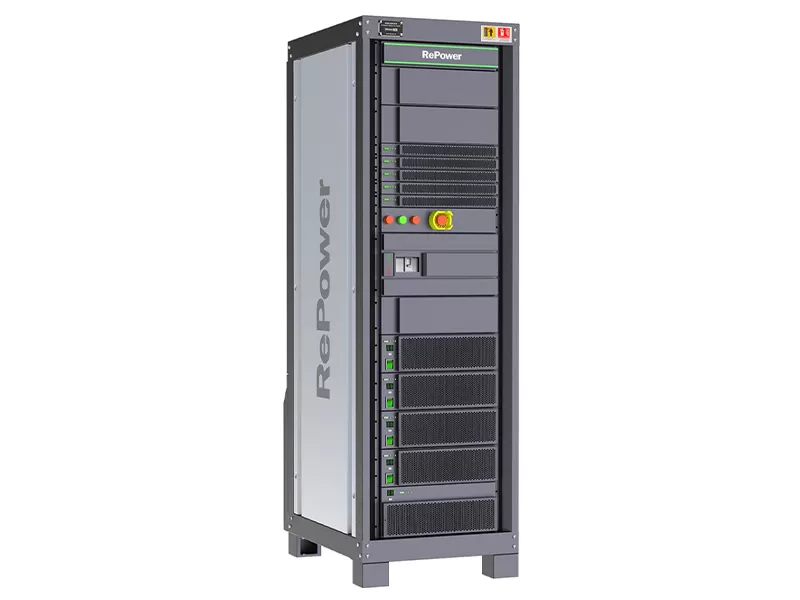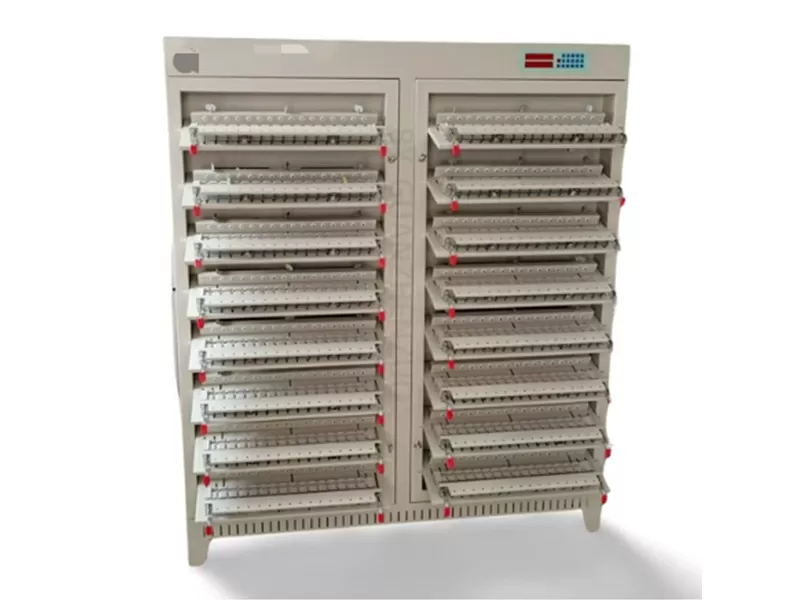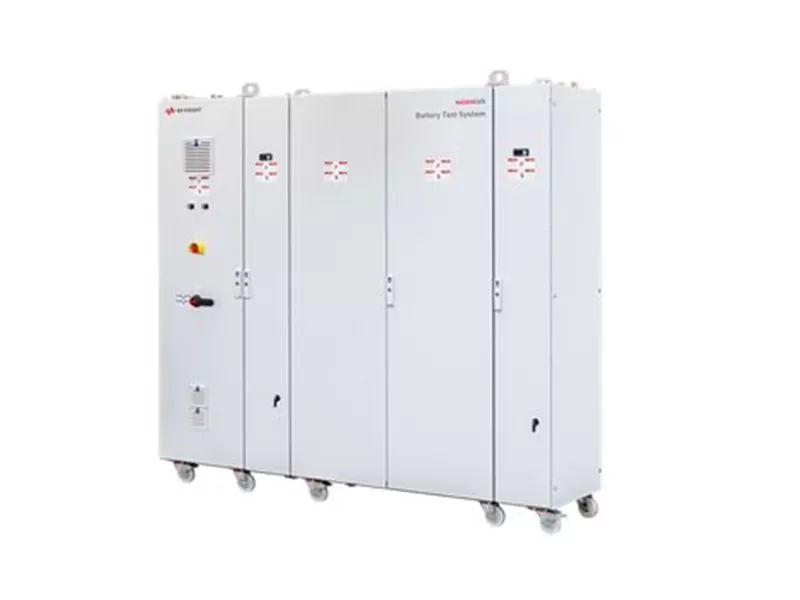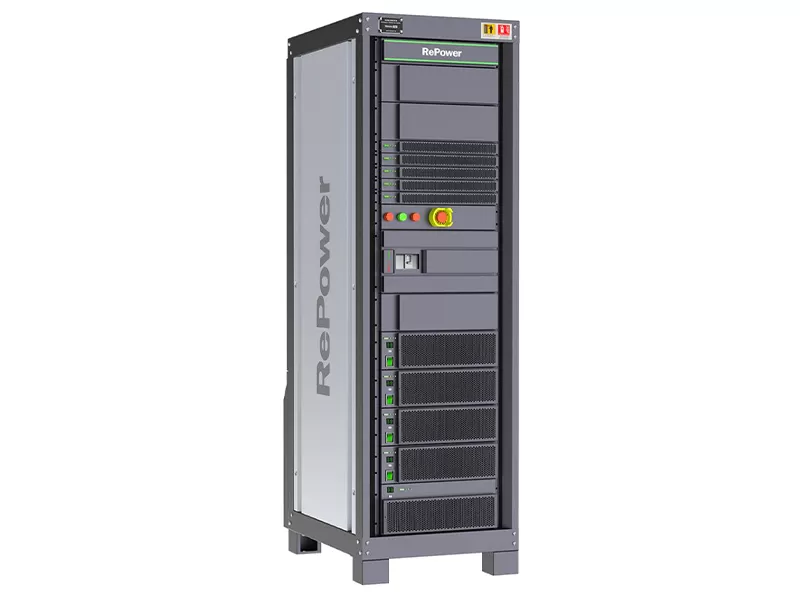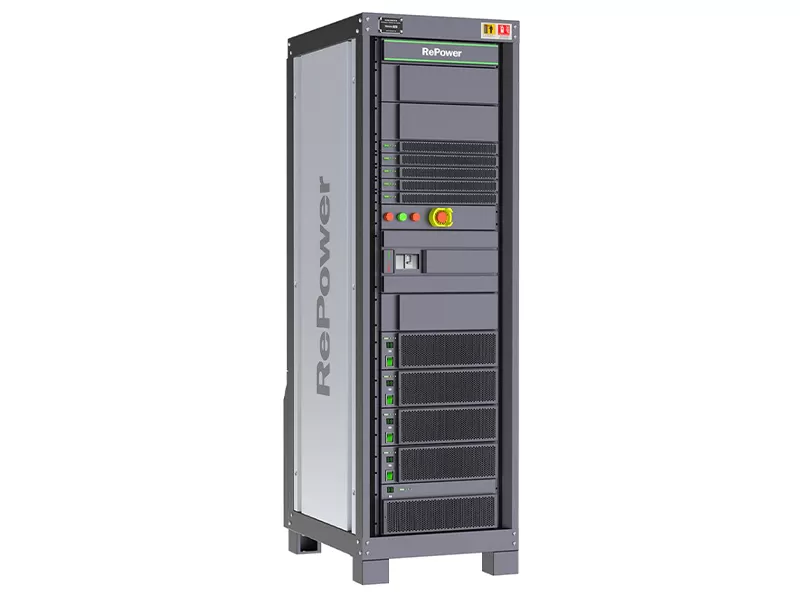1. Module/PACK Compatibility
· Supported Formats: Prismatic, pouch, and cylindrical module/PACK configurations.
· Size Range:
o Minimum: 300 × 200 × 50 mm.
o Maximum: 1,500 × 1,000 × 300 mm.
· Weight Capacity: Up to 200 kg per module/PACK.
2. Electrical Testing Parameters
· Voltage Testing:
o Range: 0–1,000 V.
o Accuracy: ±0.05%.
· Current Testing:
o Range: 0–500 A.
o Accuracy: ±0.1%.
· Capacity Testing:
o Range: 0–1,000 Ah.
o Accuracy: ±0.1%.
· Internal Resistance Testing:
o Range: 0.01–50 mΩ.
o Accuracy: ±0.05 mΩ.
3. Functional Testing
· Key Parameters Evaluated:
o Overvoltage/undervoltage protection.
o Overcurrent/short-circuit protection.
o Temperature monitoring performance.
o SOC (State of Charge) and SOH (State of Health) accuracy.
o Insulation resistance and dielectric strength.
· Cycle Testing: Supports multiple charge/discharge cycles to simulate long-term operation.
4 System Capacity
· Parallel Channels: 8–32 channels (configurable).
· Testing Throughput: Up to 20 modules or PACKs per batch (depending on size and configuration).
5. Data Management
· Real-Time Monitoring: Tracks voltage, current, resistance, and thermal behavior during tests.
· Traceability: Unique ID tracking for each module/PACK.
· Data Logging: High-resolution data storage for performance analysis and fault diagnosis.
· Reporting: Automated generation of customizable test reports.
· Integration: Compatible with MES/ERP systems for centralized monitoring and analysis.
6. Control System
· HMI: 12-inch touchscreen for user-friendly operation.
· Software: Advanced testing software with customizable profiles and real-time monitoring.
· Communication Protocols: CAN, RS485, RS232, and Ethernet for interfacing with BMS.
7. Safety Features
· Electrical Protection: Overcurrent, overvoltage, and short-circuit protections.
· Thermal Monitoring: Alerts for overheating or thermal deviations.
· Emergency Shutdown: Physical and software-activated emergency stop functions.
· Fire Suppression: Optional fire suppression system for high-capacity modules/PACKs.
8. Mechanical Design
· Dimensions: 2,500 × 1,500 × 2,200 mm (customizable).
· Weight: Approximately 3,000 kg.
· Cabinet Structure: Modular design for efficient testing and maintenance.
· Cooling System: Integrated forced-air cooling or optional liquid cooling for high-capacity tests.
9. Power Requirements
· Input Voltage: AC 380V ±10%, 50/60 Hz, 3-phase.
· Power Consumption: ≤120 kW.
10. Environmental Requirements
· Operating Temperature: 15–35°C.
· Humidity: ≤70% RH (non-condensing).
· Environment: Clean and dust-free area recommended for optimal operation.



